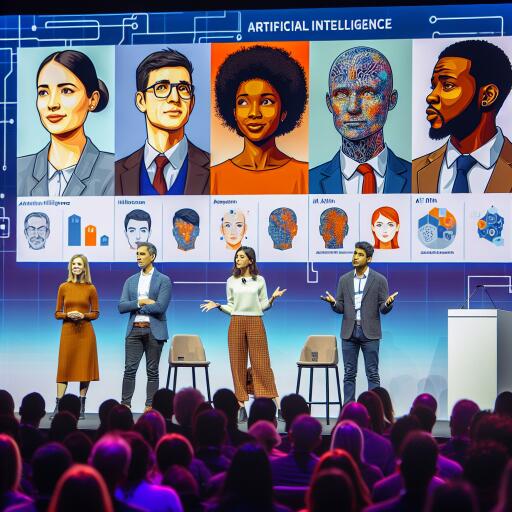NASCIO Speakers Mix AI Hope with Cautions
At the NASCIO 2024 Mid-Year Conference in Maryland, a dialogue unfolded among state Chief Information Officers (CIOs) and technology leaders, articulating a blend of hope and caution regarding the rapidly evolving realm of artificial intelligence (AI). The conference, well-attended by nearly a thousand participants, became a platform for discussing AI’s dual-edged impact on public sector work.
Keynote speaker Theresa Payton, who once served as the White House CIO, highlighted the importance of remembering the human aspect when incorporating AI into governmental operations. She emphasized on learning from past experiences that stressed on user-centric approaches as state agencies delve into AI’s potential. Payton portrayed AI as a double-edged sword: a tool for enhancing efficiency in public administration on one hand and a lever for cybercrime on the other.
One striking example given was AI’s capability, such as that offered by tools like ChatGPT, to enable cybercriminals in tailoring scams with remarkable precision, to the extent of mimicking regional dialects to enhance their deceit.
Beyond cybersecurity concerns, the conference panels explored AI’s implications for the workforce, spearheading debates centered around a NASCIO and McKinsey & Co. report. This discussion revealed a generally positive stance among CIOs regarding AI, admiring its potential to automate mundane tasks, thereby elevating productivity, service quality, and data analytics capabilities. Meredith Ward, NASCIO’s deputy executive director, reassured the audience that there wasn’t any apprehension about robots replacing human jobs but instead a focus on how AI could alleviate the burden of repetitive tasks.
Shawnzia Thomas, Georgia’s CIO, shared insights into how AI could revolutionize public sector procurement, potentially slashing the process duration significantly. However, she also shared a stark reality: the workforce is yet to catch up with AI’s advancing pace. Despite this, Georgia has made strides in preparing its workforce for the AI era, developing an AI curriculum and pioneering an “AI innovation lab” to showcase practical AI applications to its technology staff.
The conference also touched on the younger generation’s engagement with AI, underscoring efforts to integrate AI education at both university and high school levels, focusing on practical training over traditional four-year degrees.
Privacy concerns related to generative AI were another critical topic. Maryland’s state chief privacy officer, Caterina Pañgilinan, pointed out the lag in legal frameworks to adequately address the issues arising from AI’s data handling practices, which could potentially compromise citizen trust. Echoing this sentiment, Utah’s chief privacy officer, Christopher Bramwell, emphasized the importance of having AI-ready data, implying a significant preparatory task lies ahead for states venturing into AI.
This conference manifested a collective sentiment among state technology leaders: embracing AI’s potential while meticulously navigating its challenges is pivotal for advancing public sector innovation and maintaining public trust.









